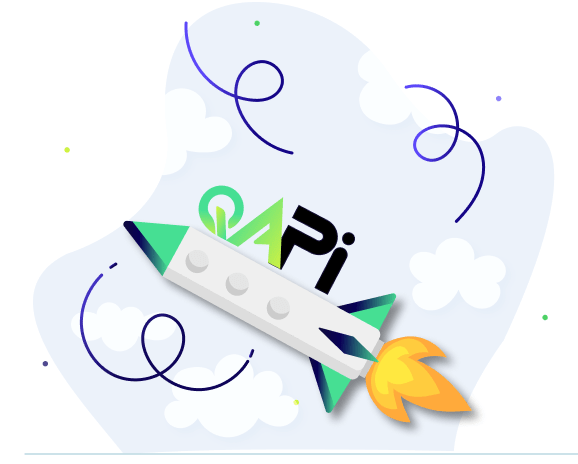Feature Friday: Discovery Recorder – AI-powered Tool Revolutionizing Testing

Get ready for an enlightening Feature Friday, as we unveil Qyrus’ cutting-edge solution – the API Discovery Recorder. This AI-powered marvel promises to transform the landscape of API testing. Join us as we journey through the key features and advantages of this tool, and discover how it empowers testers, developers, and business technologists to achieve comprehensive and efficient API testing without the complexity of traditional methods.
Tell us more about the API Discovery Recorder offered by Qyrus and its use cases.
Dan:
The API Discovery Recorder is a generative, AI-powered extension that tracks APIs that can be critical to the functionality of your web application. It helps the user quickly build API tests and generate assertions by simply browsing the web application locally on your machine.
Linto:
The recorder has the ability to filter APIs that are not directly related to the functionality of your web app. That way, it doesn’t create test scripts and assertions that don’t make any sense or are not needed. Users can directly import these API tests that were generated directly to the Qyrus platform for further testing in the API testing service.
Dan:
Furthermore, the recorder is super easy to use. A non-technical user can fire up the recorder and just as easily import these tests directly into the platform, and also without requiring documentation on the APIs under test. Of our various core services, API comes off as the most technical and difficult for non-technical users to understand and get started with. Now, that is an issue no longer.
What is the recorder’s overall impact on the testing process?
Dan:
The recorder takes the test building and creation part of the testing process and expedites it. That way, users can create more API tests at a faster rate and without as much work put into creating assertions for the actual test. Qyrus handles all of that for the user. And, the user can always go into the test themselves and edit as they see fit.
Linto:
And with users being able to churn out more test scripts, that means testers can focus on increasing test coverage where needed and even expanding into other areas of their application to automate testing.
How might this feature help testers, developers, and business technologists? What value can this feature bring?
Linto:
A tester could quickly and exhaustively generate API assertions to improve both test coverage and the speed of their API test-building process. And a developer could find use in this tool to quickly test their APIs as they build them. The more you test, the more bugs you catch, and a developer would be able to very easily perform this testing without having to dedicate time to actually building out the script themselves beyond the basic functionality of the API test. This is part of that “shift left” mentality that is often mentioned in development and testing.
Dan:
Furthermore, a business technologist or business-oriented user would be able to build out tests and indeed an entire test suite themselves. And that’s all with zero knowledge of the functionality of the APIs. The generative AI nature of the tool even helps to create descriptions for the API calls, taking even more load off of the user’s hands. That way, business users could also get an idea of what certain APIs are doing.
Does the same or similar functionality exist without Qyrus, and how do competitors address similar problems?
Dan:
Currently, there are only a handful of tools out there that are developing generative AI-powered tools for API testing. One of the things that stands out in our tool is that it can generate assertions for the API and not just the skeleton of the test itself. By working with the Qyrus API Testing service, API process tests or chaining tests can be quickly built out, as well.
Linto:
Many API testing solutions still involve a bit of coding, or at least the knowledge of it. Even the “low-code” solutions require an understanding of code snippets or basic JavaScript in order to create assertions on the API. At roughly the same time that a tester can write two assertions using other methods, the API Discovery Recorder is able to generate between ten to twenty. These can then be directly imported onto Qyrus where the tester can leverage all of the advantages of a cloud-native environment.
How do you see this feature impacting day-to-day operations across organizations?
Linto:
Not only does this tool make building solid API test scripts easier, it makes it more accessible to completely non-technical users, as well. As we just mentioned, you can generate ten to twenty assertions in the time it takes a user to make two using traditional testing methods.
Dan:
The API Discovery Recorder’s ability to filter out non-functional APIs, in addition to its ability to be plugged into Qyrus’s API process testing, are two stellar features that bring a smart testing mindset to API testing. Another important “smart” feature is the ability to generate easy-to-understand descriptions that make it easy for non-technical users to comprehend what is going on in the background of their web application.
In wrapping up this Feature Friday, we’ve explored the transformative power of Qyrus’ API Discovery Recorder. With its generative AI features, smart assertion generation, and user-friendly interface, this tool is poised to redefine how API testing is conducted. As organizations embrace this innovation, they open doors to faster, more comprehensive testing, boosting efficiency and ensuring the reliability of their applications. Qyrus continues to lead the way, providing solutions that revolutionize the testing landscape.






